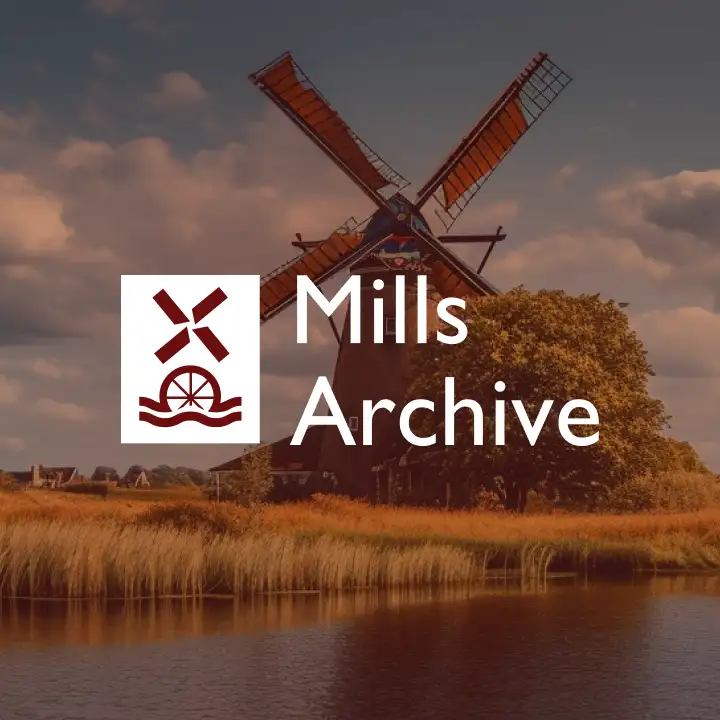About us
The Mills Archive is a permanent repository for the documentary and photographic records of traditional and contemporary mills and milling, as well as similar structures dependent on traditional power sources. It makes that material freely available for public inspection and use in research and learning.
The Mills Archive is one of the world’s great mill collections. It has rescued over 3 million documents and images that might otherwise have ended up in a landfill site. It is an Aladdin’s cave filled with memories and free to users. The collections show the rich and diverse crafts, buildings, machinery, equipment and people involved with mills in the UK and around the world.
We believe in the cultural and educational values of mills and historic power sources and wish to turn that into practical support. We extend a warm welcome to family, local, national and international historians, as well as to those who simply want to find out more about our milling heritage.

Sign up to The Mills Archive Trust Newsletter
Sign up to receive our free weekly newsletters, emailed directly to your inbox. You can find out more about the topics we cover here.
Our commitment to connecting the past with the present and future
Our strategic plan for the period up to 2027 highlights three thematic priorities:
1) Feeding the World
The history of milling has many stories of hope in a world where the number of people affected by hunger globally rose to 828 million in 2021. We aim to address the UN concern that the world is moving in reverse, away from the goal of ending hunger, food insecurity and malnutrition by 2030.
2) The Contemporary Importance of Renewable Energy
The threat of climate change mandates the move from the use of fossil‐based fuels to generate electricity. The history of renewable energy, based on wind‐ or water‐power, is one of our areas of expertise and offers many research and education opportunities.
3) The Preservation of Vanishing Skills
Traditional wind‐ and water‐mills over the last millennium have relied on the skills of millers and millwrights to operate, maintain, and repair them. In the last century many have disappeared and their survival as heritage assets is dependent on an ever‐decreasing group of craftsmen and women. There is an urgent need to record and make public the technical details of their crafts and the potential impact of the loss of this aspect of cultural heritage.
Latest from our blog

